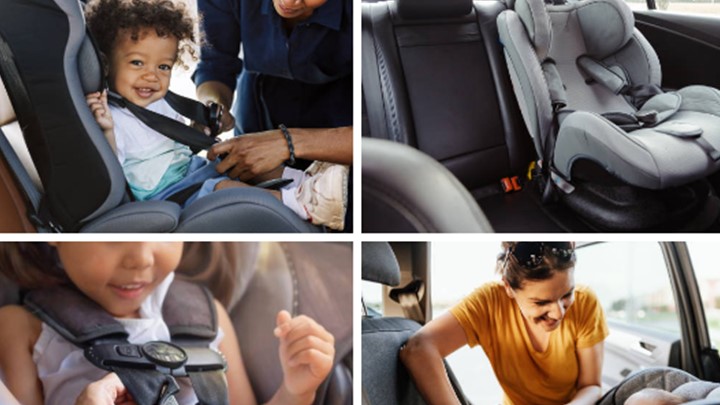Before leaving for a road trip, strapping your child into a seat belt entails more than just a simple procedure. Perhaps they require additional assistance, like a supportive harness, a comfortable seating position, or reclined seating. For children with specific disabilities, an ordinary car seat simply doesn’t work. Something that is safe for them has to be somewhere out there.
This is where special needs car seats fill in the gap. They are much more than a safety measure. They are revolutionary for families which deal with mobility restrictions, medical conditions, and sensory difficulties.
In this guide, let’s dive deep into the most important features of these seats and outline the reasons why you need them along with tips for choosing the perfect one for your child.
What Exactly Is a Special Needs Car Seat?
A special needs car seat is designed for children (or even adults) who require additional support beyond a standard car seat or booster. These seats cater to various needs, including:
- Postural support for children with muscle weakness or cerebral palsy.
- Medical accommodations for those with feeding tubes, oxygen tanks, or casts.
- Behavioral considerations for kids with autism or sensory processing disorders.
- Weight and height adaptations for larger children who have outgrown typical car seats.
If your child struggles with traditional restraints or needs extra positioning support, a special needs car seat isn’t just helpful—it’s essential.
5 Signs Your Child Might Need a Special Needs Car Seat
1. Standard Car Seats Don’t Provide Enough Support
Ever noticed your child slumping or tilting sideways in their regular car seat? Some kids need extra head, neck, and body support to stay in a safe position. Special needs car seats come with harnesses, lateral supports, and recline options to ensure a secure and comfortable fit.
2. Sensory Issues Make Car Rides a Struggle
For children with autism or sensory processing disorders, the wrong seat can feel unbearable. Certain materials, harnesses, or textures may cause distress. Special needs car seats often come with customizable padding and snug fits to create a sense of security, helping to ease anxiety during travel.
3. Medical Equipment Needs to Be Accommodated
If your child relies on medical devices like oxygen tanks or feeding tubes, a regular car seat might not have the necessary space or adaptability. Special needs car seats often feature built-in accommodations for medical equipment, making travel safer and less stressful.
4. Your Child Is Too Big for a Standard Car Seat
Some children outgrow traditional car seats but still need secure positioning. Many special needs car seats are designed for older children and even adults, ensuring proper restraint regardless of size.
5. Escaping the Harness Is a Constant Issue
Does your child find a way to wriggle out of their seatbelt every time you hit the road? Some special needs car seats come with advanced safety harnesses that prevent escapes while keeping kids comfortable.
Choosing the Right Special Needs Car Seat
1. Assess Your Child’s Needs
Before purchasing a seat, consider your child’s specific challenges. Do they need extra head support? Do they have frequent meltdowns? Does their medical equipment need extra space? Identifying these factors will help you choose the best option.
2. Look for Safety Features
Not all special needs car seats are created equal. Look for models with:
- Five-point harnesses
- Impact-absorbing foam
- Recline options
- Side supports
- FAA approval (if you plan to fly)
3. Consider Growth and Longevity
Kids grow fast! Investing in a seat that can adjust in height and weight capacity ensures you won’t need to replace it too soon.
4. Get Professional Guidance
A pediatrician, occupational therapist, or a child passenger safety technician (CPST) can provide recommendations based on your child’s medical and behavioral needs.
Cost and Insurance
A high-quality special needs car seat can be pricey, ranging from $200 to over $1,500, depending on features. The good news? There are ways to get financial assistance:
- Insurance Coverage: Some insurance plans cover adaptive car seats if deemed medically necessary.
- Nonprofits and Grants: Organizations like Safe Kids Worldwide and Easterseals offer assistance programs.
- Medicaid & State Programs: Certain states have funding programs for adaptive equipment.
- Secondhand Options: Some certified safety programs offer refurbished car seats at a lower cost.
If cost is a concern, check with your child’s healthcare provider for resources—they may be able to guide you toward financial aid options. We recommend this list of special needs car seats.
In Conclusion
Selecting a special needs car seat is not only concerned with safety compliance. It ensures that each journey is as effortless, safe, and comfortable as possible for both the parent and the child. The right car seat can effectively assist in managing medical conditions, sensory issues, and mobility limitations.
What’s next? You need to do research, consult specialists and purchase the most suitable car seat. After all, there is no room for risks when it concerns a child’s safety and comfort. You may want to learn more about special needs job description.

